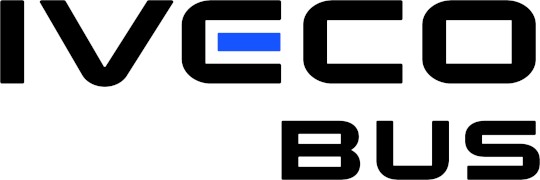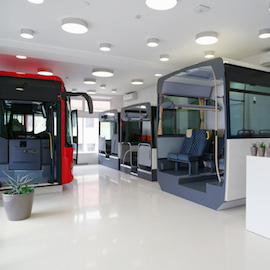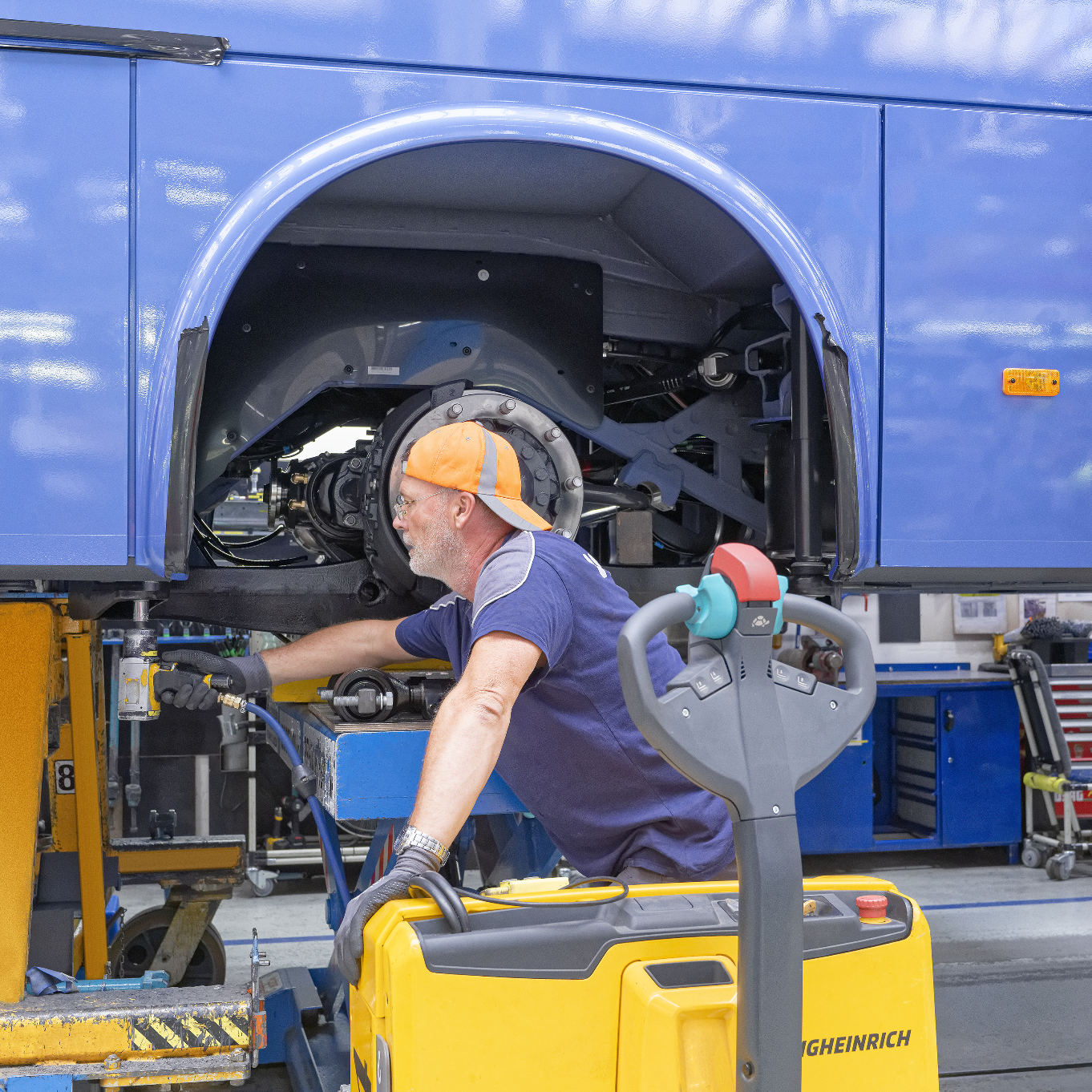IVECO BUS confirms its leadership in alternative traction vehicles and extends its sustainable offer for urban transport with a new-generation hybrid bus range, available in Natural Gas and XTL renewable fuel versions. The Biomethane Compatible URBANWAY, the first model in the IVECO BUS offer to benefit from this technology, is on preview at EuMo 2022 in Paris - Porte de Versailles (hall 4 – stand H26) from 7 to 9 June.
This new-generation URBANWAY hybrid delivers 16% fuel savings compared to the standard diesel version and a reduction in CO2 emissions of up to 19%, together with a significant improvement in Total Cost of Ownership.
Paris, 7 June, 2022
IVECO BUS extends its offering for urban transport with a new-generation hybrid technology for its URBANWAY and CREALIS ranges which delivers a significant reduction in energy costs and CO2 emissions compared to previous generations, while optimising Total Cost of Ownership. This is part of the strategy that, as a leader in alternative tractions, IVECO BUS has adopted to drive the energy transition through a mix of technologies, providing customers with a choice of solutions according to the requirements of their missions and operations.
IVECO BUS is introducing a complete range of low-floor city buses featuring the new-generation hybrid technology, available in Natural Gas and XTL renewable fuel versions. With this new addition, its product portfolio for urban transport now offers a choice of:
- 12-metre standard and 18-meter articulated URBANWAY models equipped with a Cursor 9 engine in Diesel and XTL versions.
- 10.5-, 12-, and 18-meter URBANWAY with a Cursor 9 Natural Gas engine.
- 12- and 18-meter CREALIS in Diesel, XTL and Natural Gas versions.
Deliveries of the URBANWAY hybrids in 12 and 18 metre versions will begin at the end of the year.
IVECO BUS is also extending the next-generation hybrid technology to its CROSSWAY Low Entry model, available for the very first time in Natural Gas and XTL renewable fuel versions to offer local authorities and transport operators an additional solution to reduce their carbon footprint. The IVECO BUS CROSSWAY LE HYBRID has already been presented for tenders in 2022, with deliveries starting in the first quarter of 2023.
“With our new hybrid solution, we are capitalising on our extensive experience in hybrid buses, as testified by more than 2,500 units sold through our IVECO BUS and HEULIEZ brands, and our leadership in natural gas technology,” explains Stéphane Espinasse, IVECO BUS Head of Sales and Products. “The result is a new generation of hybrid buses that harnesses the advantages of natural gas to deliver further improvements to the sustainable performance of our hybrid URBANWAY and CREALIS models. We offer our customers a portfolio of sustainable mobility solutions with an energy mix
that matches the specific needs of their missions with proven technologies that deliver excellent Total Cost of Ownership.”
A step up in sustainability and profitability
IVECO BUS worked in close collaboration with global technology company Voith on the development of the electric drivetrain. It features a 48 V hybrid solution developed by Voith for the new DIWA NXT gearbox and the proven Cursor 9 engine. The DIWA NXT gearbox is combined with a powerful 35 kW peak electrical recovery module, which acts as a starter and generator to recover the kinetic energy accumulated during the deceleration and braking phases, with a high-energy LTO battery (48 V) mounted on the roof. The battery is able to supply 25 kW during the starting phases to relay the Cursor 9 engine.
The new solution also features a Stop & Start function, which is activated automatically with no driver intervention, and offers multiple advantages to users and operators. It eliminates noise and vibrations, resulting in greater comfort for passengers, residents, and pedestrians at bus stops, and further improves fuel economy.
With these features, the new-generation URBANWAY Hybrid delivers 16% fuel savings compared to the non-hybrid version – an important advantage at a time when local authorities and operators are facing rising energy costs. In addition, this renewable fuel hybrid solution enables them to reduce their CO2 emissions by up to 19%.
The simpler design of this new-generation hybrid solution, which has no costly high-voltage components, together with the savings in fuel costs, significantly reduces the Total Cost of Ownership compared to previous full-hybrid technologies.











